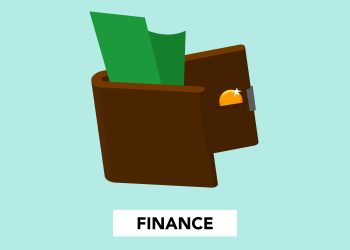The recent approval of 154 digital money lenders by regulatory authorities in Nigeria has opened up a realm of exciting possibilities for entrepreneurs looking to tap into the dynamic world of fintech and financial services.
As the country continues to embrace digital innovation, this policy shift not only signals a commitment to financial inclusion but also paves the way for budding startups to thrive in a rapidly evolving landscape.
Let’s look at some of these possibilities
Micro-Lending Platforms: The is the gateway to financial inclusion in Nigeria and a great business opportunity for entrepreneurs. One of the most promising avenues for startups lies in the micro-lending sector.
With the approval of digital money lenders, entrepreneurs can leverage technology to create platforms that provide quick and accessible loans to individuals and small businesses.
By utilizing sophisticated algorithms and data analytics, these platforms can assess creditworthiness efficiently and offer instant loans, helping to bridge the financial gap for many who were previously underserved by traditional banks.
This does not only empower individuals but also stimulates economic growth by fuelling small business expansion in the country.
Digital Payment Solutions: The rise of digital money lenders also presents an opportunity to innovate in the digital payment space. Startups can create user-friendly mobile wallets, payment gateways, and peer-to-peer payment platforms that facilitate seamless transactions.
With the increasing adoption of online shopping, cashless payments, and mobile banking in Nigeria, such solutions are in high demand. Entrepreneurs can design platforms that cater to specific niches, offer added value, and prioritize security to gain a competitive edge in this rapidly growing market.
It is therefore a great opportunity for transforming digital transactions, which is fast growing in the country.
Credit Scoring and Financial Education: As digital money lenders gain traction, startups can step in to provide credit scoring services and financial education tools. Developing algorithms to accurately assess creditworthiness can be a lucrative venture.
Furthermore, creating platforms that educate consumers about responsible borrowing, saving, and investing can contribute to a financially literate society. This, not only enhances the overall economic landscape but also builds trust among consumers, fostering a loyal customer base for these innovative startups.
Therefore, as an opportunity for empowering consumers, the first few companies to venture into this area will position themselves to gain the trust and the loyalty of the niche market.
Some Success Stories You Can Relate With
Certainly, there are a few success stories in the areas of micro-lending, digital payment solutions, and credit scoring/financial education from both local and international contexts. Here are a few existing players locally in Nigeria, Africa and outside the region.
Micro-Lending
Kuda (Nigeria): Kuda is a Nigerian digital bank that offers a range of financial services, including microloans, to its customers. The platform leverages technology to provide instant loans based on customers’ transaction history and behaviour. Kuda’s user-friendly app and quick loan disbursal have gained in popularity among young Nigerians who need quick access to funds for various purposes.
Branch International (Kenya): Branch International is a micro-lending platform that started in Kenya and expanded to other African countries. It provides small loans to individuals without traditional credit histories by using smartphone data to assess creditworthiness. The platform has reached millions of customers, helping them meet their financial needs.
Digital Payment Solutions
Paystack (Nigeria): Paystack is a Nigerian fintech startup that offers online payment processing solutions to businesses. It enables businesses to accept payments online via various channels, including cards, bank transfers, and mobile money. The platform gained traction and was acquired by Stripe, a leading global online payment company, highlighting its success and potential.
M-Pesa (Kenya): M-Pesa is one of the most famous success stories in the digital payment space. It’s a mobile money platform that originated in Kenya and quickly became a phenomenon across Africa. M-Pesa allows users to perform various financial transactions using their mobile phones, including money transfers, bill payments, and more.
Credit Scoring and Financial Education:
CreditMantri (India): CreditMantri is an Indian fintech company that provides credit scores, reports, and personalized advice to users. The platform uses data analytics to assess creditworthiness and offers tools to help users improve their credit scores. It has empowered many individuals to manage their finances more effectively and access better credit options.
Experian Boost (USA): Experian Boost is a service offered by Experian, a leading credit reporting company in the USA. It allows individuals to add positive payment history from their utility and telecom bills to their credit reports, potentially improving their credit scores. This innovative approach has helped many people enhance their credit profiles.
These success stories demonstrate the potential and impact of startups in the micro-lending, digital payment, and credit scoring/financial education sectors. They showcase how innovative ideas, technological advancements, and a commitment to addressing financial challenges can lead to significant positive outcomes for both businesses and consumers.
In conclusion, the approval of 154 digital money lenders in Nigeria has opened up a treasure trove of business opportunities for startups. Whether in the micro-lending sector, digital payment solutions, or credit scoring and financial education, entrepreneurs have a chance to make their mark in a rapidly evolving fintech ecosystem.
With the right vision, innovative strategies, and a commitment to addressing financial inclusion challenges, these startups can contribute to transforming the way Nigerians access financial services and participate in the digital economy. As the nation continues its journey towards a cashless future, these startups hold the key to unlocking new horizons of growth and empowerment.











